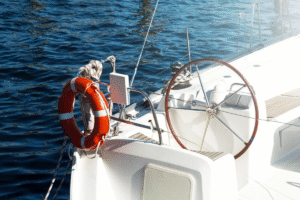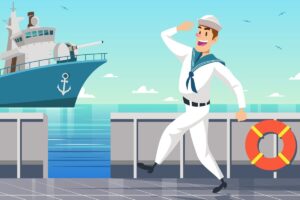As a medical examiner who has worked with many mariners, I understand the importance of a medical examiner for mariners in Florida. Whether operating a commercial vessel, working on a tugboat, or serving on a cruise ship, your medical is critical. Your health check requires a thorough medical exam, which assesses your physical and mental well-being, ensuring you meet all the medical standards the U.S. Coast Guard sets.
But what happens when your medical is denied? I know this can be frustrating and stressful. However, I have guided several mariners and can tell you with experience that it’s not the end of the road. I’m here to help walk you through what steps to take next and hopefully ease some of your worries.
Let’s get into the details of why denials happen, how to address them, and, most importantly, how to get you back on the ship.
Why Medical Exams Are So Important
The U.S. Coast Guard (USCG) requires all mariners to complete a medical exam which is submitted to the USCG for review. This ensures they can perform their duties safely. As members of the maritime industry, you’re responsible for not only your own safety but the safety of your crew, passengers, and cargo, and you cannot take on such responsibilities without being mentally and physically fit.
During your medical exam, we assess various aspects of your health, like your vision, hearing, heart, and lung condition, and observe any medical issues that might impair your ability to perform your duties. A problem in any of these areas could result in your medical denial.
Why Would My Medical Be Denied?
There are many reasons why a medical might be denied, but in my experience, the most common issues revolve around chronic health conditions. Even if you feel fine or have been managing a condition for years, if your medical situation raises red flags during the exam, it may result in a denial or of your medical or that you obtain a medical waiver.
Don’t Panic: A Denial Isn’t the End
First and foremost, if your medical is denied, don’t panic. Denials can have a variety of reasons, and many of them are temporary or can be overcome with the right actions.
If your medical is denied, the first step is to figure out why. You should receive a letter or form that explains the reasons for the denial. This information is critical because it will help guide your next steps.
In most cases, the denial is not permanent. It might just mean you need to get additional documentation, seek treatment for a condition, or provide evidence that your condition is being properly managed.
Steps to Take After a Denial
Understand the Reason: Read the denial explanation carefully and note the specific reasons why your license was rejected. Sometimes, it’s something as simple as missing paperwork or incomplete test results. Other times, it may require more intervention, like treatment or surgery.
Consult Your Medical Examiner: As your medical examiner, I’m here to help. Reach out and let’s discuss the reasons for your denial and how we can address them. Oftentimes, I can help explain the reasoning behind the decision and recommend the next steps to improve your chances of receiving your license which may require a waiver.
Follow-Up with Specialists (if needed): Depending on the condition that caused the denial, you may need to see a specialist. For example, if the issue is related to your heart, you may need to visit a cardiologist for further testing. Similarly, you may need to consult an ophthalmologist if it’s related to your vision. Make sure you follow their treatment recommendations closely and obtain proper documentation of your treatment.
Get Your Condition Under Control: If the denial was related to a chronic medical condition like diabetes or high blood pressure, it’s important to consult your healthcare provider to get that condition under control. This might involve lifestyle changes like diet and exercise, medication adjustments, or other treatments. Once the condition is stabilized, you can return to your examiner with updated documentation.
Submit the Correct Documentation: After addressing the medical issues, gather all the necessary documentation, including medical reports, test results, and letters from specialists, to show that the condition is either resolved or being effectively managed. Share these documents with me for review and we can request reconsideration by the USCG.
Reapply for Your License: Schedule a re-examination with your medical examiner once you have everything in order. During this exam, you must demonstrate that the issues that caused your denial have been resolved or are being appropriately managed.
I understand how frustrating it can be to have your marine license denied, but know that it’s not an obstacle without a solution. Your health is just as important as the job you do. By taking the right steps and adopting a healthy lifestyle, you can get back on track and confidently continue your maritime career. As your medical examiner, I’m here to help you navigate the Mariner Medical License Exams in Florida and ensure your health and career stay on course. Contact us today at aweinberg@medavex.org or call (727) 648-2402.





